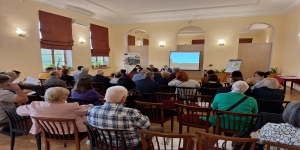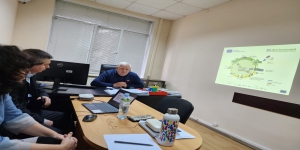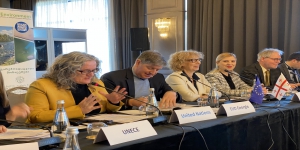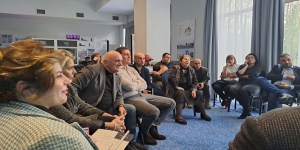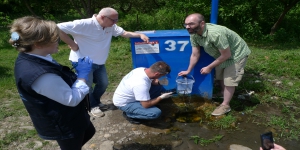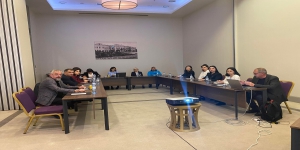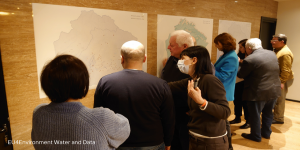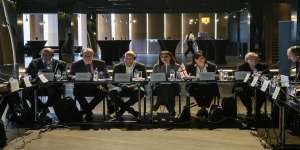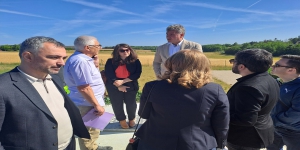Georgia has good water resources fed by mountain rivers draining from the Greater and Lesser Caucasus and there is no systemic shortage of water. However, these resources are unequally distributed between the western and eastern parts of Georgia (the Black Sea basin rivers having more abundant overall flows and a more dense river network).
Still, the country struggles with a variety of water-related challenges: insufficient water supply and sanitation systems, industrial pollution (particularly downstream of Tbilisi and of the industrial district of Rustavi and Gardabani), coastal pollution of the Black Sea, flood risks and growing water demand from the agriculture (irrigation) and energy sectors. In addition comes the impact of climate change, which shows changes in precipitation (e.g. less snow, more frequent floods and droughts). Georgia has committed to reform water policies and practices as part of the Association Agreement signed with the European Union that entered into force in July 2016.
Still, the country struggles with a variety of water-related challenges: insufficient water supply and sanitation systems, industrial pollution (particularly downstream of Tbilisi and of the industrial district of Rustavi and Gardabani), coastal pollution of the Black Sea, flood risks and growing water demand from the agriculture (irrigation) and energy sectors. In addition comes the impact of climate change, which shows changes in precipitation (e.g. less snow, more frequent floods and droughts). Georgia has committed to reform water policies and practices as part of the Association Agreement signed with the European Union that entered into force in July 2016.
News
Consultation Meetings for...
Georgia held its second public consultation meetings on the Enguri and Rioni River Basin Management ...
Empowering Producers for ...
Austrian experts from the EU4Environment Water and Data programme are in Tbilisi this week (22 Janua...
Dialogue on Georgia’s Pro...
On 17-18 January, the 10th National Policy Dialogue on Water was held in Tbilisi, Georgia, followed ...
Groundwater audit on June...
From June 12 to June 17th, in the scope of the EU4Environment Water & Data programme, a team of ...
Workshop on ecological mo...
On May, 8th 2023, a workshop on ecological monitoring centered around « Establishing nutrient concen...
Georgia kicks off the pla...
On February 14, 2023 the Kick-off workshop for the development of the River Basin Management Plans (...
EU supports Georgia's Wat...
On 6-7 December 2022, Georgia hosted the 9th meeting of the National Policy Dialogue on Water follow...
Latest updates (July-Augu...
Capacity building
This Summer, EU4Environment - Water and Data organised a workshop on groundwater ...
Georgian delegation field...
During a field trip organised on 14 June by the International Office for Water (OiEau) for the Frenc...
Events
Workshop on the implement...
Workshop objectives, expected outputs and outcomes
The meeting focusses on three aspects
Nationa...
Land Monitoring Meeting
Venue: Hotel Courtyard by Marriott 4, Freedom Sq. Tbilisi 0105, GEORGIA
Agenda
Within the Europe...
Inception Workshop - RBMP...
The meeting aims to:
Present the approach and timeline for the Development of the River Basin Man...
Georgia: National Policy ...
From Tuesday 06 December 2022 - 9:00AM To Wednesday 07 December 2022 - 5:00PM
Location Tbilisi,...
Related material
 Zurab Jincharadze
Zurab Jincharadze
Ms. Mariam Makarova – Head Water Div., Envir. & CC Dept (MEPA)
Ms. Maia Javakhishvili – Dep. Head of Envir. & Climate Change Dept (MEPA)


